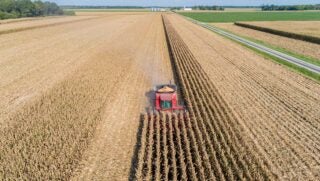Over the past several decades, more and more research, policies, and conversations have centered around racial disparities in farming and agriculture — and groups across industries are continually seeking ways to quantify racial disparities in agriculture.
At the same time, others question the existence and root causes of these disparities, going as far as calling any action to alleviate barriers as “reverse racism.” For example, upon entering office, President Joe Biden’s administration sought to address some of these disparities by allocating $4 billion to “socially disadvantaged” farmers under the American Rescue Plan Act of 2021. These funds have been held up in courts as several farmers across the country claim them to be racial discrimination.
As much of the country continues to debate the merit for claims of restorative action, many organizations, nationally and locally, are seeking ways to support Black farmers and farmers of color through programs and policies. A research team at the McKinsey Institute for Black Economic Mobility published a report in November 2021 outlining possible short and long-term solutions to racial disparities in farming. They outline economic disparities that Black farmers experience, including sales, net income, and government payments, compared to their peers.
Some recommendations include increasing capital and market access, providing start-up financing, and attracting diverse talent through programs promoting entrepreneurship.
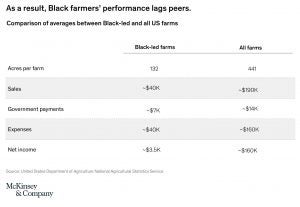
As organizations seek solutions to address disparities, one group in Columbus, Ohio, actively engages BIPOC (Black, Indigenous, and People of Color) in agriculture. Growing and Growth Collective is a community-based, Black women-run organization that seeks to engage BIPOC Millennials in urban agriculture. They hope that through their work, they can “help improve health outcomes, deepen community engagement and foster economic empowerment” in BIPOC communities. Their work includes operating community gardens in Columbus, coordinating Market-to-Kitchen educational events, and hosting community book chats.
“We started with a shared love for agriculture. We also noticed a lot of socio-political undertones to agriculture and access in our community,” said founder Adrienne Williams.
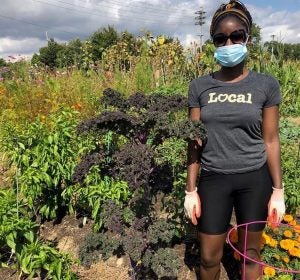
Seeing the lack of healthy food options in their community and wanting to directly impact, Williams along with fellow founders Jera Oliver and Toddia Njanga started Growing and Growth Collective to directly address these challenges. Their experience with food and health and their love for their community has led them to build a coalition that has impacted hundreds across the city.
One beautiful component of Growing and Growth Collective that I have witnessed is the growers’ plots in the Near East Side Community, where community members can sign up for a raised bed to grow their own produce. Last summer, I had the opportunity to volunteer at this garden site, and harvest produce for a local assisted living facility.
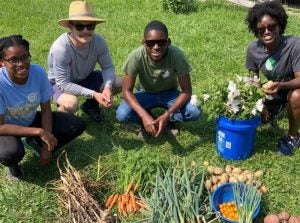
Shelley Stewart III, a partner at McKinsey & Company and leader of the McKinsey’s Institute for Black Economic Mobility, says that these models are central to community-based efforts to build BIPOC land sovereignty.
“Co-ops pool resources and jointly own land as well as Black farmers networks,” Stewart said. “These networks often provide their members with access to information, training programs, and mentorship.”
As these networks are built, there are still challenges that Black-led growers are facing. First, data telling the whole story of Black farmers in growers is still lacking.
“One challenge was simply finding the right data to pull from USDA databases. Once we were able to pull the right data, we noticed we were limited to data only on demographic characteristics of Black farmers and their farms,” Stewart explained.
There is a real opportunity for the U.S. Department of Agriculture and other organizations to help in building data capacity to give the agriculture industry and policymakers a better understanding of the experiences and efforts of Black farmers. Stewart says this looks like reporting data on Black farmers and growers in every Census of Agriculture.
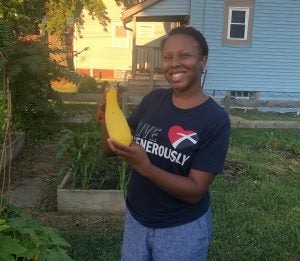
Data will help build advocacy around challenges Black farmers face. Conversations will, too. Growing and Growth Collective has committed to fostering conversations about food access, BIPOC land ownership and sovereignty, health inequities, and other agricultural issues that face marginalized communities.
Conversations like these will continue to push the agriculture industry. People often talk about how we are only as strong as our weakest link. Black farmers, Indigenous farmers, and farmers of color are integral to our food system at every level. Growing and Growth Collective is a model of supporting and advocating for farmers and growers everywhere.
Irene Lewis is a recent Master’s student in the John Glenn College of Public Affairs at The Ohio State University with a major in public administration with a focus on public policy and management. She is a south Louisiana native and food justice and access advocate.

